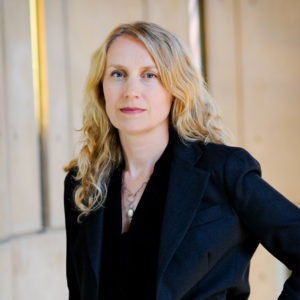Trump Wins

For several years, I have been trying to understand the human costs of downsizing American industry. That suffering unites African Americans and whites and Latinos, women and men, North and South. Our society has journeyed from the impoverished tenements of the turn of the twentieth century to a stable mid-century middle class, only to again swell the ranks of a working class that can’t stay out of poverty.
Before tonight, I had strong ideas about my moral responsibilities and my plans for what to do about that harsh reality—the book I was writing, the policy lab I was organizing to develop an infrastructure agenda for the Rustbelt. I imagined coalitions that could cut across racial groups, across urban-suburban-rural social and cultural divides. When Bill Clinton told West Virginia that Hillary was going to come for them, no matter how they voted, I fancied that I could be part of that movement to show up, at long last, for a just transition.
Tonight, I feel like a wet dog, churned and choking on the force of a tsunami. With all three branches of government lined up to accelerate our national experiment with drowning public services, I see nothing but further atrophy and decline. Without government, there is no plan for our post-industrial regions and people—whether they voted for Trump or Clinton. With new waves of automation coming fast, with the low-skilled service economy poised to become even more badly paid, there will be no recovery without investing in high tech education, safe and competitive infrastructure, and humanistic policing. It is no answer to scream against trade, against “the system,” against Muslim and Latino scapegoats. Trump’s tax plan and his party’s actions give every reason to think that he and Congress will grease our slide into the Second Gilded Age, with all the rest of us distracted by hate and polarization. If all we can hear is screaming, it’s hard not to fall deaf.
Against much evidence to the contrary, tonight I will nurture scraps of hope that Trump will actually try to help America’s communities once known for coal and steel and manufacturing and timber and textiles. Against all evidence to the contrary, I will pray that he’ll care about the pains of industrial automation and globalization even where those pains are borne by so many millions of non-white Americans. But if he doesn’t, when he can’t, there is a bigger coalition we can build beyond him. I hope.
Michelle Wilde Anderson is a public law scholar and practitioner focused on state and local government, including urban policy, city planning, local democracy, and public finance. Her work combines legal analysis with the details of human experience to understand the local governance of high poverty areas, both urban and rural, and the legal causes of concentrated poverty and fiscal crisis. Her current research explores legal restructuring (such as bankruptcy, disincorporation, and receiverships) for cities and counties in distress—issues that affect not only Rust Belt capitals such as Detroit, but also post-industrial cities in California, rural areas in Oregon, and small towns across the Northeast and South. She is a professor of law and the Robert E. Paradise Faculty Fellow for Excellence in Teaching and Research at Stanford Law School.
